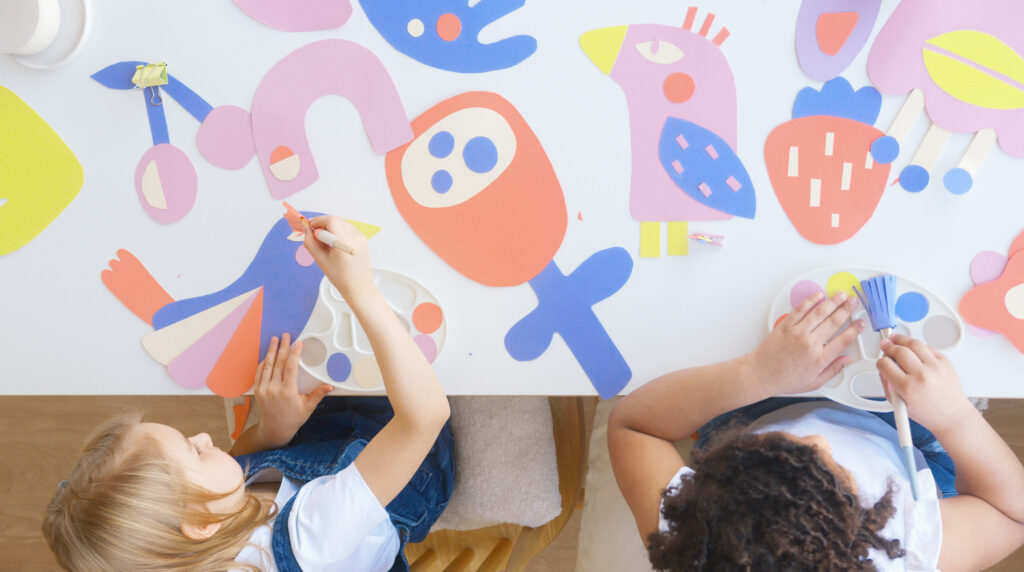Primary education is essential for the growth and personal and academic development of boys and girls. During the years that encompass this stage, the basis of student learning is established. In this post, we present some educational methodologies for primary school that you need to know. These methodologies will help you ensure the long-term academic and personal success of your students.
These approaches will allow you to maximize the potential of your students, going beyond traditional methodologies. Stay tuned to read the post and discover how to use innovative educational methodologies that cater to the individual needs of your students.
Benefits of employing innovative educational methodologies in primary school
Before delving into some educational methodologies that will be of great use in primary classrooms, let’s explore the benefits of using innovative educational methodologies in this stage:
- More meaningful learning: Through the application of innovative educational methodologies for primary education, students achieve more meaningful learning. This means that students can relate knowledge to their own experiences or real-world problems. This promotes better understanding, leading to more lasting and profound learning.
- Enhanced skill development: The use of innovative educational methodologies in primary school promotes the development of skills necessary in today’s world. These skills include critical thinking, collaboration, and problem-solving. Therefore, it’s important to foster collaborative work to enhance the personal and academic development of students.
- Increased student motivation: The use of innovative educational methodologies in primary school fosters greater motivation among children, making them active participants in their own learning. Incorporating games, technology, and practical applications piques students’ interest, thus promoting higher motivation toward learning.
- Adaptability and flexibility: Implementing various methodologies helps tailor teaching to the students’ needs, resulting in more significant and lasting learning. This promotes the skills that each student excels in.
Game-Based Learning
We begin our recommendations of educational methodologies for primary school with game-based learning. What does it entail? It involves using games and playful activities for teaching and learning. The design of these activities should engage students and promote active learning.
In this case, imagination and creativity play a crucial role. Here are some ideas to inspire you when preparing games and activities for your subject:
- Mathematics: You can opt for mathematical puzzles, math olympiads, mental math games, and more.
- Language: Try crosswords, word searches, theatrical representations, etc.
- Science: Experiments are an excellent way to explore scientific concepts in a fun way.
- Other subjects: In many subjects, you can opt for role-playing games, memory games, simulations, and other activities.
With Additio App, you can use the class scheduling and tracking section to indicate which games you’ll introduce to enhance the teaching of specific content. You can also use rubrics to assess these types of activities.
Technology-Based Learning
Another essential educational methodology for primary school that you need to know is technology-enhanced learning. We are undoubtedly in a digital era and education is no exception.
In technology-enhanced learning, digital tools are used to facilitate student learning, fostering greater motivation and developing their digital skills—a crucial aspect of today’s society.
How can you introduce technology-enhanced learning in the classroom? By using apps, interactive resources, websites, etc. A practical example of technology-enhanced learning would be to use quizzes in Additio App, having students utilize school computers to answer specific questions.
Other ways to implement technology-enhanced learning include:
- Using websites containing exercises and interactive activities related to specific subjects. This is especially useful for languages or mathematics.
- Accessing online resources that enable knowledge expansion, such as educational videos or podcasts. This can be helpful for various subjects like history, geography, or even languages.
- Using specific apps: There are numerous apps for different subjects and purposes; you just need to find those that can genuinely add value and knowledge to your students. For instance, a math app or a language learning app.
Cooperative Learning
Another methodology that is undoubtedly essential nowadays is cooperative learning. It’s increasingly important to possess social and communication skills. Cooperative learning activities promote social interaction, idea exchange, and collaborative knowledge construction.
Here are some activities that can help foster cooperative learning:
- Work in pairs: Encourage your students to work in pairs to solve problems or exercises. This enhances their communication and concept expression skills, allowing them to assist each other in solving problems.
- Group projects: Divide the class into several groups to collaboratively work on a project. Within the group, they must collaborate to achieve the final outcome you’ve assigned.
- Debates: For the later years of primary school, you can encourage debates on various topics. This fosters your students’ analytical skills and their ability to build and communicate arguments. Moreover, they learn to listen to others, leading to joint conclusions.
- Co-assessment: Another way to promote cooperative learning is by creating activities that encourage co-assessment among students. This increases students’ sense of responsibility, aiding in providing positive and constructive feedback. It also promotes equal participation among all members.
Are you already using these educational methodologies in primary school?
These are just a few of the methodologies you can use for primary education; there are many more. Which ones do you use, and how do they contribute to your students’ active learning? Share your thoughts with us on social media: Facebook, Twitter, Instagram and Youtube.
Remember that you can use the Additio App completely free with the Additio Starter plan. Will you miss the chance to improve your teaching tasks and save time?
See you soon!





